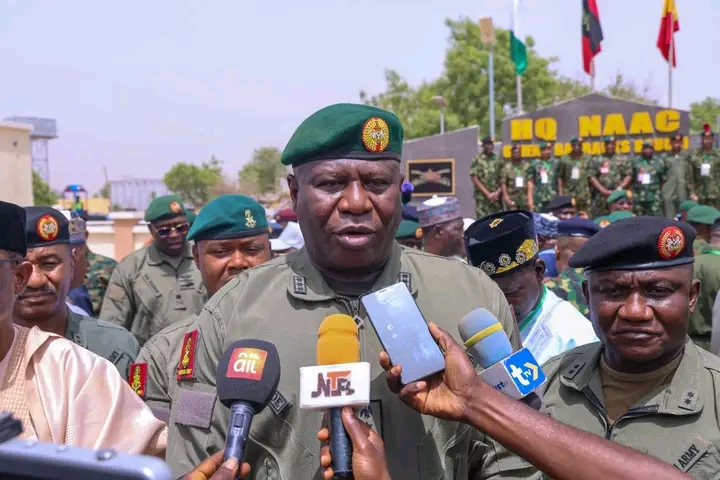The escalating security crisis in Benue State, marked by a surge in attacks and killings attributed to armed herders, has prompted a direct intervention from the highest echelons of the Nigerian Army. Lieutenant General Olufemi Oloyede, the Chief of Army Staff (COAS), made a significant visit to the state capital, Makurdi, to address the volatile situation and offer reassurance to the beleaguered populace. This high-level visit underscores the gravity of the security challenges facing Benue and signals the Federal Government’s commitment to restoring peace and stability to the region. The COAS’s presence in Benue is a testament to the severity of the situation and the urgent need for decisive action to quell the violence and protect vulnerable communities.
Upon arrival in Makurdi, the COAS engaged in a private meeting with Governor Hyacinth Alia at the Government House. While the specific details of their discussion remain undisclosed, Governor Alia subsequently addressed the Benue Traditional Council and members of the state security council, shedding light on the purpose and outcome of the COAS’s visit. He conveyed a message of hope and solidarity from the COAS, emphasizing the Federal Government’s resolve to tackle the escalating violence and bring the perpetrators to justice. This direct communication with traditional leaders and security officials underscores the collaborative approach being adopted to address the multifaceted security challenges. The closed-door nature of the initial meeting suggests a strategic discussion involving sensitive security information and operational planning.
The governor’s address revealed the grim reality of the escalating violence, with the death toll from recent attacks in Apa and Gwer West Local Government Areas tragically rising to 33. This stark statistic underscores the urgent need for effective security measures to prevent further bloodshed and protect innocent lives. The governor’s update on the casualties serves as a sobering reminder of the human cost of the ongoing conflict and reinforces the urgency of the COAS’s visit. The continued rise in fatalities highlights the failure of previous security measures and the need for a more robust and comprehensive approach.
The COAS’s visit, while brief, carried significant weight and symbolic importance. It demonstrated the Federal Government’s commitment to addressing the security challenges in Benue and provided a much-needed sense of reassurance to the affected communities. While the COAS refrained from addressing the media directly, his presence and the message relayed by Governor Alia served as a powerful statement of intent. The visit also provided an opportunity for direct consultation and coordination between the army leadership and local authorities, facilitating a more effective and targeted security response.
Following the meeting with the governor, further consultations were held with key stakeholders, including the Tor-Tiv, Professor James Ayaste, and the Och’idoma, Dr. John Eliagwu (represented by Chief George Edeh), along with other prominent traditional chiefs. These engagements underscore the importance of community involvement and traditional authority in addressing the complex security issues facing the state. The inclusion of traditional leaders in these discussions highlights the vital role they play in fostering peace and stability within their communities. Their influence and deep understanding of the local context are crucial for developing sustainable solutions to the ongoing conflict.
The presence of other high-ranking security officials, including the Commissioner of Police, the Commandant of the Nigerian Security and Civil Defence Corps (NSCDC), and the State Director of the State Security Service (SSS), further emphasizes the collaborative nature of the security efforts. These officials represent key elements of the state’s security apparatus, and their participation in the meetings signifies a united front against the escalating violence. This inter-agency cooperation is essential for effective intelligence sharing, coordinated operations, and a comprehensive security response. The involvement of multiple security agencies reflects a whole-of-government approach to tackling the crisis and ensures that all available resources and expertise are brought to bear on the problem.


